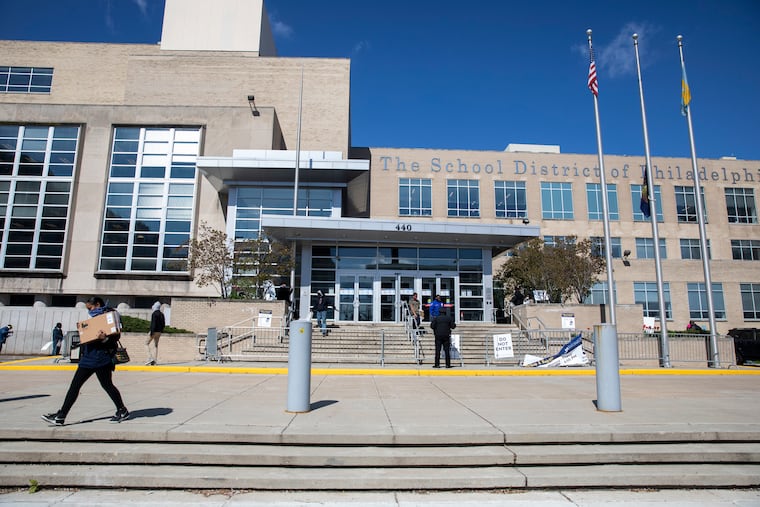Despite coronavirus uncertainty, Philly school board passes a $3.5 billion budget, but trouble looms ahead
The district’s budget includes no new money for new labor pacts with the school system’s two largest unions, representing its teachers and blue-collar workers. Both contracts expire in August.

The Philadelphia school board Thursday night passed a $3.5 billion budget that narrowly avoids school-based cuts for the 2020-21 school year but warned that down the road pandemic-related financial problems could emerge.
The coronavirus has seesawed the district’s finances.
At one point, the district projected a healthy surplus for the coming fiscal year; later, it was looking at a $38 million deficit. But a partial city reopening in coming weeks, coupled with a state proposal to keep education subsidies at fiscal 2020 levels despite deep cuts in other areas means the district will skate by, even without the property-tax increase that Mayor Jim Kenney once proposed and later withdrew.
The district’s budget includes no new money for new labor pacts with the school system’s two largest unions, representing its teachers and blue-collar workers. Both contracts expire in August.
And the five-year picture remains stark.
» READ MORE: Schools brace for budget cuts as the coronavirus wreaks havoc on the economy
Chief financial officer Uri Monson said the Philadelphia School District projects a budget deficit of just over $700 million by 2025 — down from a forecasted shortfall of nearly $1 billion over five years.
The district is “better than we were before, but obviously facing some significant fiscal challenges,” Monson told the board.
The new budget contains some funds for an eventual reopening of schools that have been shuttered since September, but with so many unknowns, Superintendent William R. Hite Jr. has directed central office departments to prepare 10% across-the-board cuts in case more funds are needed. Like many districts around the country, Philadelphia is contemplating the possibility of having to institute smaller class sizes, do more cleaning, and purchase added equipment.
“We want to make sure we have the funds available to deal with those types of issues,” Monson said.
Any cuts, Monson said, will be made with an eye toward minimizing the impact to schools.
Board President Joyce Wilkerson noted the tough path the district faces going forward, given the economic downturn associated with the pandemic.
“We’re adopting the budget at a time of great uncertainty,” Wilkerson said.
The board lacks the authority to raise its own funds and so relies heavily on the state and city to run schools. Officials have been able to largely insulate schools, but that won’t be possible without infusions of new money.
Cuts, Wilkerson warned, could be “more severe than what we lived through seven years ago," when Pennsylvania slashed education spending to the district by more than $300 million.
“We simply cannot endure a funding loss of that magnitude and erase all the progress that’s been made,” Wilkerson said.
Relative to other big-city school districts, Philadelphia is in decent shape, Monson said, thanks largely to a healthy fund balance it had built up to weather such emergencies.
“It buys us time while the economy recovers, so we’re not making desperate decisions under a really short timeline,” Monson said. “I’m probably a little calmer than a lot of my colleagues around the country, but there’s still a lot of work to be done over the next several years.”